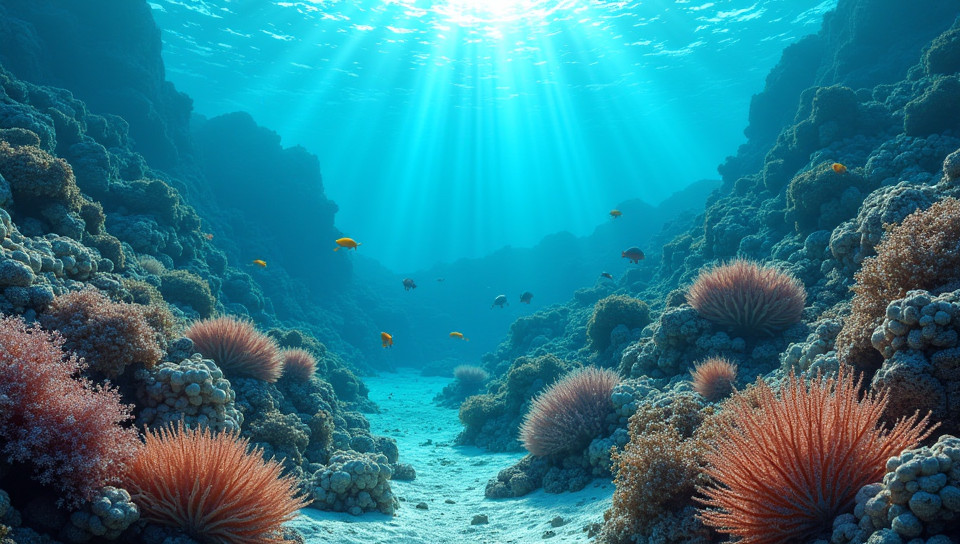Climate change threatens coral reef restoration 97%

Coral Reefs Under Siege: The Devastating Impact of Climate Change
As we gaze out at the vibrant coral reefs that line our oceans, it's hard to imagine a world without these breathtaking ecosystems. However, climate change is rapidly eroding the very foundation of these underwater wonders, threatening the delicate balance of marine life and the livelihoods of millions who depend on them.
The Coral Reef Crisis
Coral reefs are not just beautiful to look at; they're also some of the most biodiverse ecosystems on the planet. Home to an astonishing array of species, from fish and turtles to sharks and rays, coral reefs provide essential ecosystem services that support human well-being. They protect coastlines from erosion, support commercial fisheries, and even generate significant revenue through tourism.
The Devastating Effects of Climate Change
But climate change is taking a devastating toll on coral reefs worldwide. Rising ocean temperatures are causing mass coral bleaching events, which occur when corals expel their algal symbionts and turn white due to stress. This can lead to the death of up to 70% of the coral colony, leaving behind a barren, lifeless landscape.
Rising sea levels and increased storm intensity are also taking a toll on coral reefs. As oceans absorb more carbon dioxide, they become more acidic, making it harder for corals to build their calcium carbonate skeletons. This can lead to reduced coral growth rates and even the collapse of entire reef structures.
- Some of the specific impacts of climate change on coral reefs include:
- Mass coral bleaching events
- Increased coral disease and mortality
- Reduced coral growth rates
- Shifts in species composition
- Decreased fisheries productivity
The Threat to Restoration Efforts
Coral reef restoration is a complex and challenging process, requiring careful planning, execution, and maintenance. However, climate change is making it increasingly difficult for restoration efforts to succeed. Rising temperatures and increased storm intensity can damage or destroy newly restored reefs, while ocean acidification can hinder coral growth and reduce the effectiveness of restoration techniques.
A Call to Action
The future of coral reefs hangs in the balance, and it's imperative that we take immediate action to address the impacts of climate change on these critical ecosystems. This requires a concerted effort from governments, businesses, and individuals to:
- Reduce greenhouse gas emissions
- Protect and conserve existing coral reef habitats
- Support sustainable fishing and tourism practices
- Invest in research and development of new restoration techniques
Conclusion
The fate of our coral reefs is inextricably linked to the health of our planet. As climate change continues to ravage these underwater ecosystems, it's essential that we take bold action to address this crisis. By working together, we can mitigate the impacts of climate change and ensure the long-term survival of coral reefs for future generations. The time to act is now – will you join the fight to save our coral reefs?
- Created by: Ren Ōta
- Created at: Nov. 9, 2024, 1:22 p.m.
- ID: 15695









